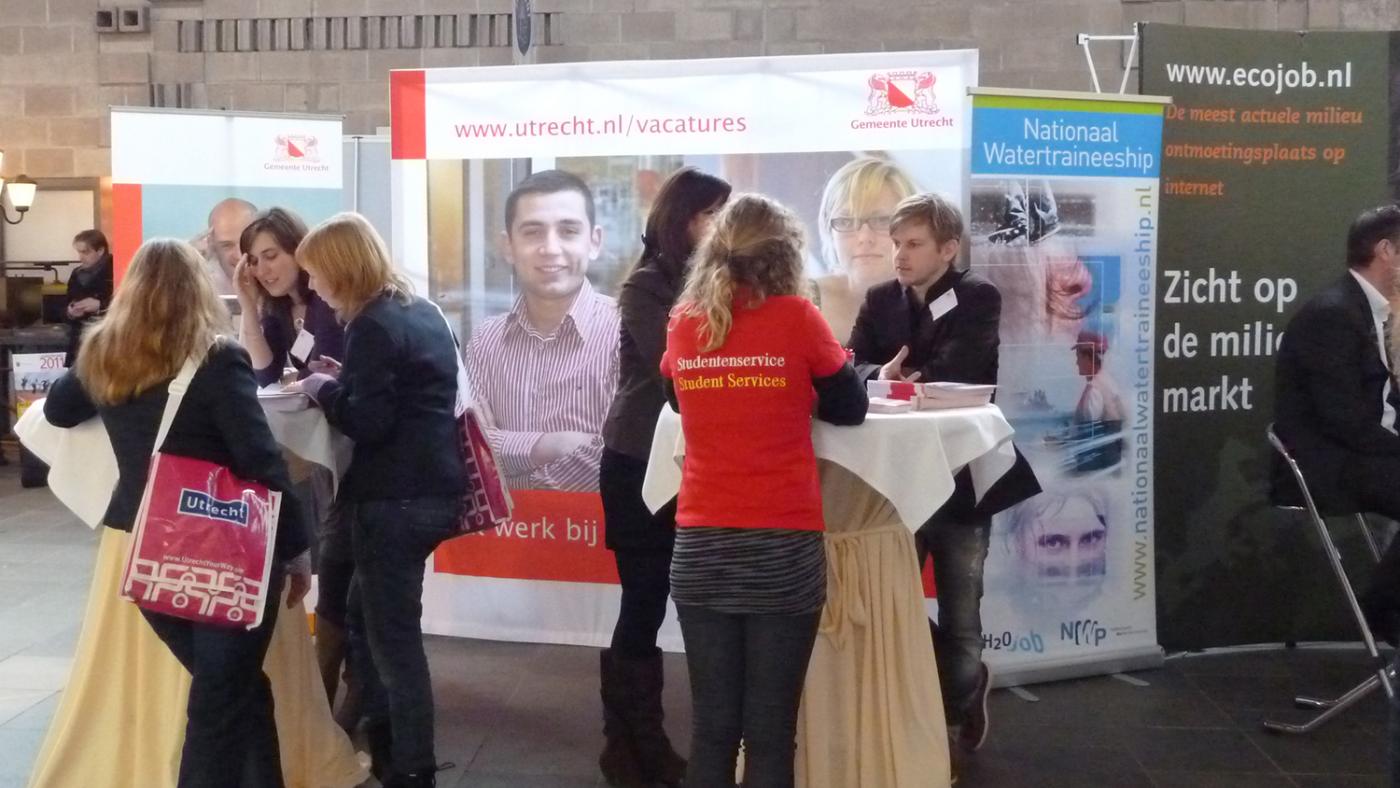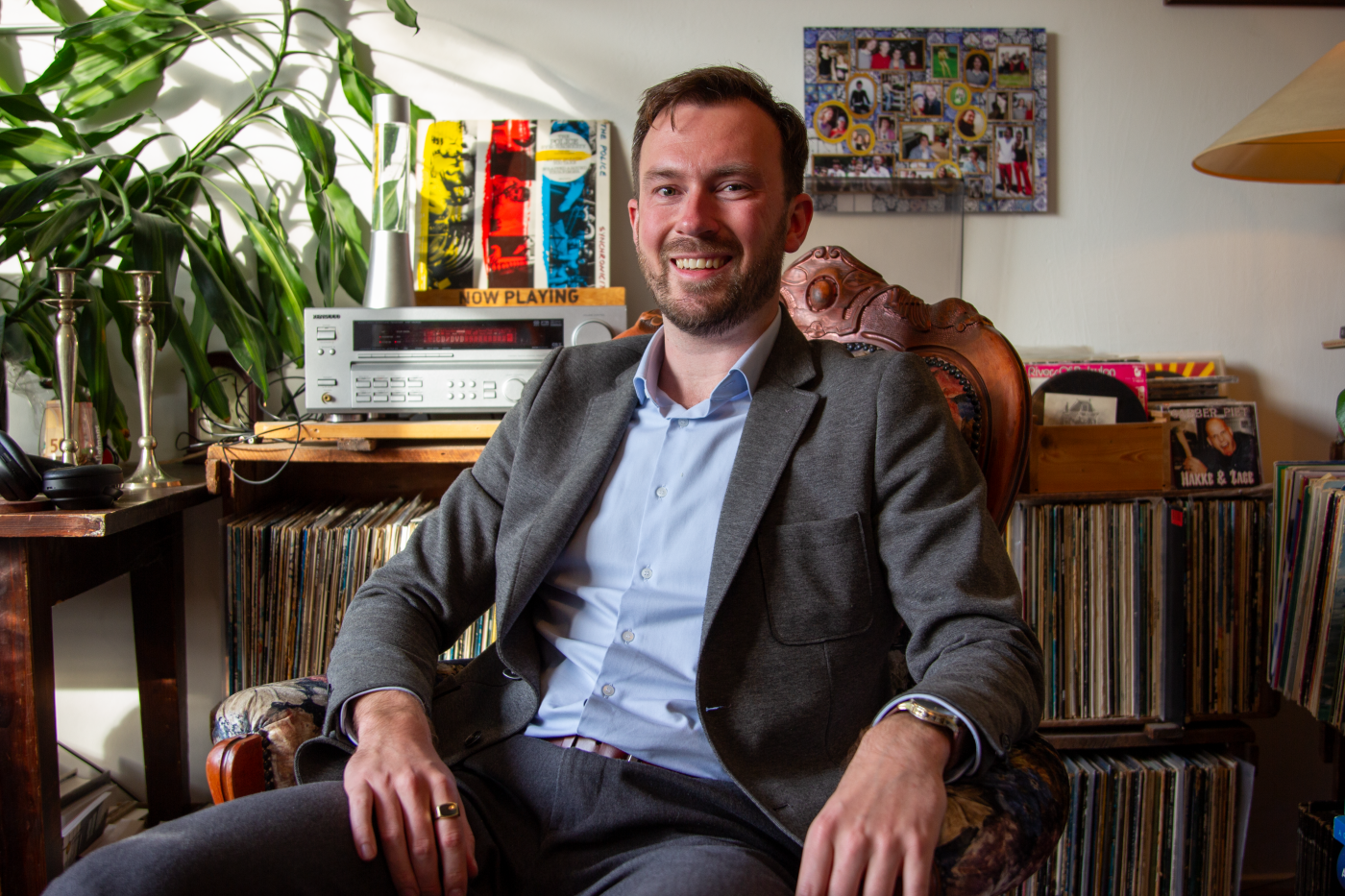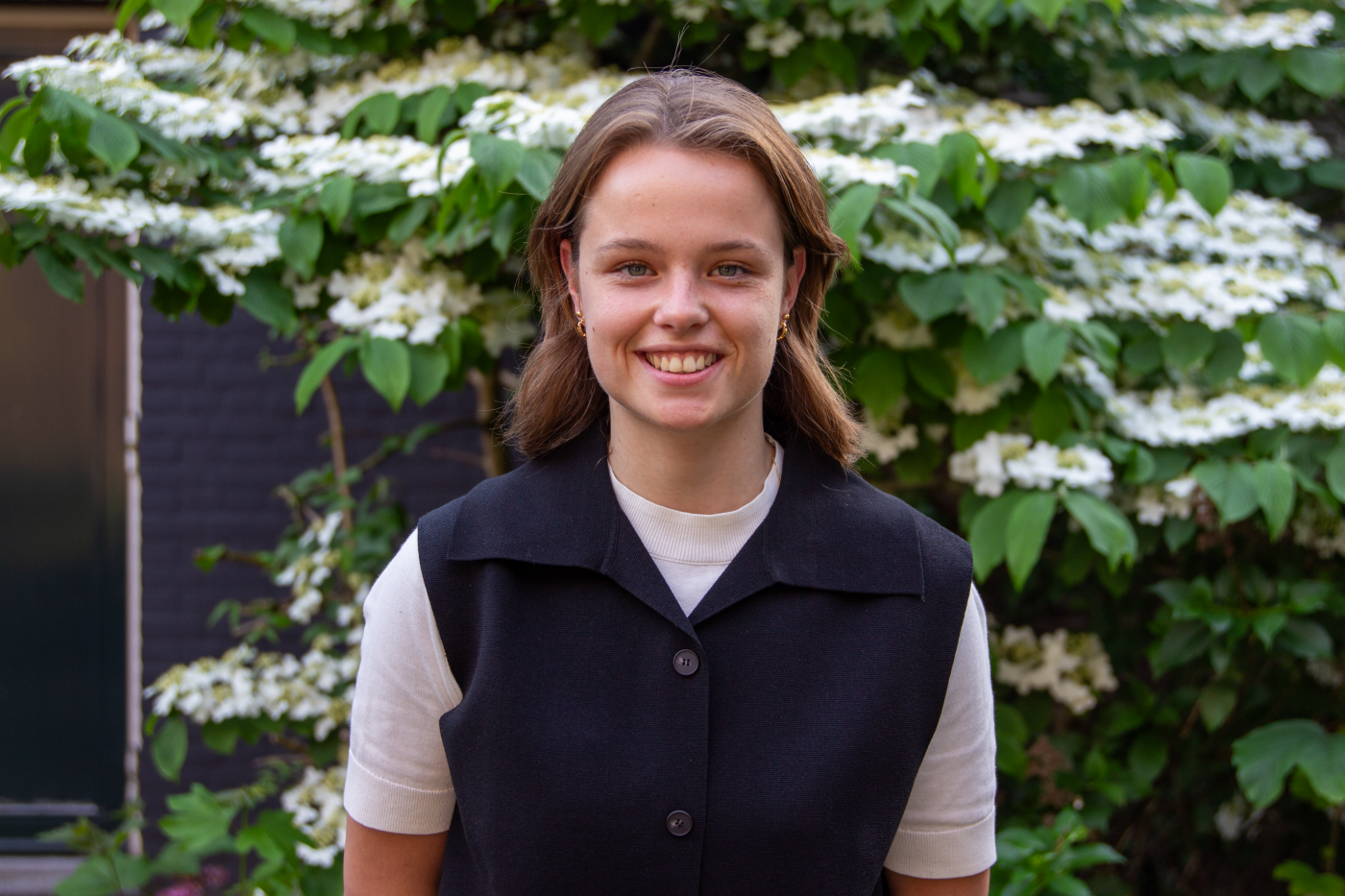The downside of graduating
When graduates gets stuck in a tight job market

The biennial National Alumni Survey (2023) shows that, on average, Master's graduates find a job up to three months after graduating. Just over fifty percent of respondents found paid work within six months, while two percent only found a job after twelve months.
According to figures from the UWV benefits agency, about 12,150 vacancies for highly educated people were open in the Midden-Utrecht region. Software and application developers have the best chances of success in the current labour market. Other promising professions can be found in healthcare, financial services, construction, technology and engineering, education, and the government. Nevertheless, according to Statistics Netherlands (CBS), the number of unemployed people in Utrecht is rising.
UWV labour market advisor Jeroen Schuil notes that many recent graduates are less visible to UWV because they are not receiving unemployment benefits. However, ‘people with a diploma from a university or university of applied sciences are more likely to be unemployed than the average in the Netherlands’. The national percentage is 23 percent, while in Amersfoort that's 29 percent, in Gooi and Vechtstreek it is 35 percent, and in Midden-Utrecht it is 35 percent. According to Rutger-Jan Scholtens, Career Officer at Utrecht University, it is not surprising that the percentage in Utrecht is higher than average ‘because there are relatively more students living here’.
Mismatch
In March 2025, the alderwoman of Utrecht, Linda Voortman, said during a municipal council meeting that the rise of unemployment in Utrecht is due to a ‘mismatch’ in the labour market, in which the supply and demand of alumni are not aligned. But recruiter Geert-Jan Reijmer, from Greatday, adds that students often have ‘relatively little knowledge of the corporate world’. They don't lack scientific knowledge, as they were trained to become researchers, but many don't have a clue how the business world works. ‘Once they graduate, they start applying for jobs they think they are suited for, and I would almost say they do it randomly.’ In addition, according to Reijmer, companies want to see quick results. ‘That's why they often look for people with experience, which is very frustrating for recent graduates.’
According to Schuil, things could improve if the municipality and UWV focused their services on students' needs. He believes that recent graduates know perfectly well how to find job vacancies, so they need less support when it comes to applying for jobs, but more help with networking. This group is usually looking for like-minded people with whom they can exchange experiences and tips, so Schuil would suggest ‘networking events with other highly educated job seekers.'
‘I can find a job easily with two Master's degrees'
UU graduate Samuel de Weerd (31) was worried when he took longer than expected to find a job. His traineeship at the Ministry of Infrastructure and Water Management only came after a year and a half. De Weerd has two Master's degrees, one in Creative Writing from a university in the United Kingdom and another in Energy Science from Utrecht University. He is specialised in data science related to energy systems in the Netherlands.
After graduating, he didn't start looking for a suitable full-time job right away. Instead, he took the time to explore what kind of work suited him best by taking freelance jobs and internships, as well as setting up his own company, a business that organises group trips in the south of France. ‘I thought: "I have two Master's degrees, so if I want a salaried job, I'll be able to find one. I expected to find something within two or three months, which turned out not to be the case at all.’
Recruiter Reijmer speaks to new entrants to the labour market every week, particularly those with an academic background. He says De Weerd's overconfidence is not uncommon. ‘It often goes wrong, not so much because job seekers set their standards too high, but because they have the wrong frame of reference. They put their application at a different level or think they are further along than they are,’ says the recruiter. ’They assume they would start at a high level just because they have an academic degree, but if you don't have any experience, you can't make certain demands.’

Samuel de Weerd at work. Photo: courtesy of De Weerd
When he first started his job search, De Weerd was regularly rejected based on his motivation letter. ‘I was too formal, which is considered old-fashioned. Nowadays, companies seem to be looking for an easy-going attitude and positive energy. If that comes across in your letter, they'll invite you for an interview.’
Although De Weerd got through many rounds of interviews after that, he was unsuccessful in many cases due to his limited work experience. The requirement not to work full-time didn't work in his favour, either. ‘I wanted to work four days a week because I have many other interests,’ he explains. De Weerd now works 36 hours a week spread over four days. ‘I will keep doing so for at least another year and a half. After that, I hope I can work 32 hours.’
De Weerd has been working at the Ministry of Infrastructure and Water Management since March 2025. ‘They call it a traineeship, but it's a junior position with a junior salary, where you get opportunities to develop yourself more broadly. We have workshops, courses and introductions every Friday. They really want everyone to integrate well into the organisation. So, initially, you receive a broader education so that you have a better understanding of what is going on in different departments and how everything is connected. This gives you a better chance of ending up in a position that suits you, not to mention it helps you build a strong network which can come in handy in the future.’

Piet Groot. Photo: DUB
Knowledge broker
Piet Groot (33) studied Psychology in Leiden and followed a research master's programme in Social Psychology before getting a PhD in Utrecht. As a PhD candidate, he researched the integration of highly educated migrants, focusing on doctors who come from abroad. 'I studied what they have to do to be accepted by the people around them.’
Groot obtained his PhD on June 16, 2023, but decided to travel through Asia for a few months first. He started looking for a job in January 2024, but often found himself empty-handed. ‘I was invited for interviews often, but finding a job is also about finding a place where you feel at home. I went to several interviews for jobs that ended up choosing someone else.’
Once, this happened with a job he was really interested in, and Groot had a hard time dealing with the rejection. But he kept his head up. He applied for jobs from 9:00 am to 5:00 pm to have some structure in his day. ‘You prepare yourself for a position, you read up on it, you follow up with a phone call. I replied to positions that excited me and matched my academic background. That was my strategy. It's disappointing not to get the job after you've put so much energy into it.’
In October 2024, after nine months of searching, Groot finally found a job in the Hague, at the Ministry of Asylum and Migration. ‘I'm a kind of knowledge broker. A position as research coordinator became available at the ministry,’ he recollects. His job has both a scientific and a social side. ‘I still get to work in science, disseminate it within the ministry and pass it on to civil servants. I provide a lot of data in the form of publications.’ He hasn't completely said goodbye to academia. ’I'm allowed to attend conferences, which is how I keep in touch with universities.’
Groot applied for jobs both in and out of academia. Jobs in academia are not easy to come by, according to recruiter Reijmer. ‘There is just no money. The government is cutting the budget more and more. Many people who might have ended up in academia after their master's degree are now disappointed and have to try to find another kind of job.’

Marian Biekart. Photo: DUB
Networking through a study association
Alumna Marian Biekart (24) found her current employer, PBLQ, through her study association, Sticky. The former Business Informatics student explains: ‘I often went to networking drinks, although the study association also organises company dinners. That's how I met someone who had been on Sticky's board a few years earlier. He asked me if I already knew what I wanted to do after my studies.’ He knew that a company that had set up a research programme approved by Erasmus University Rotterdam was looking for PhD students. ’It was a job that combined work and study. I hadn't thought about that myself. I wanted to talk about it, and that's how the ball started rolling.’
Biekart graduated in November 2024 and now works as a ‘dual’ PhD student. She works and conducts PhD research. ‘I carry out research and advisory work. I am currently involved in an audit investigation into algorithms.’
Biekart owes her current job entirely to the network she built through the study association. ‘The advantage is that all those networking events are aimed at participants from your study programme. Warm contacts are always better than cold ones.’
Recruiter Reijmer welcomes this advice. ‘Invest in networking. You can do this by joining a student or study association at an early stage of your studies. They organise many useful activities. It's not just about socialising. You end up meeting lots of people and expanding your network.’
A student's responsibility
Reijmer argues that universities could do more to prepare students for a possible future in business. He also believes that student and study associations can make a valuable contribution in this regard.
According to career officer Scholtens, this is too simplistic. After all, a large proportion of UU alumni do not end up in the corporate world, but rather in the (semi)public sector. In addition, he says there are major differences between Dutch universities in terms of how they help students prepare for the labour market. Some universities, like Utrecht University, are broad, while others are more technical universities, such as Delft University of Technology.
Scholtens emphasises that finding a job after graduation varies depending on the programme. ‘At university, you are basically trained as a researcher in your field. We don't have a compulsory third-year internship or graduation internship like in higher professional education. But almost every programme includes a graduation research project. In many two-year research master's programmes, students even gain research experience twice.’
As far as Scholtens is concerned, programmes have a responsibility to provide a good alumni policy in addition to education and research. ‘Students are also responsible for their own preparation for the labour market,’ says Scholtens. ‘Career Services can facilitate that personal responsibility and provide guidance and inspiration.’
Career Day
Wednesday, May 14, is Career Day at Utrecht University. Students and PhD candidates must register if they want to participate in workshops or attend presentations by companies or institutions. The job fair will take place in the hall of the Ruppert Building and will be open to everyone. It starts at 11:00 am and last until 4:00 pm.